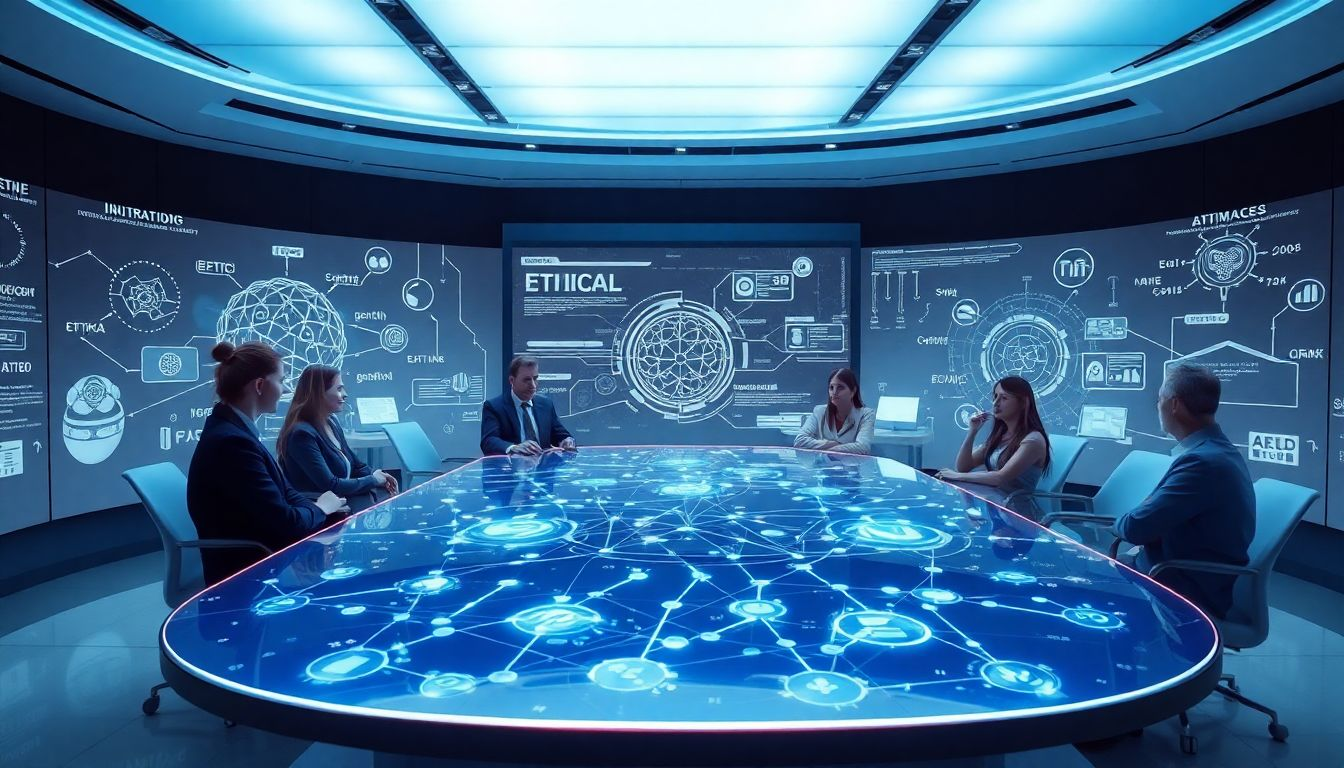
Best Free AI Tools for Beginners in 2025
Discover the top free AI tools for beginners in 2025, perfect for those just starting their AI journey.
Read More →Unveil the future of artificial intelligence with our guide to the top 10 AI trends set to shape 2025. From advanced generative models and ethical AI frameworks to AI-driven automation and personalized virtual assistants, this blog explores the innovations revolutionizing industries and everyday life. Stay ahead of the curve with insights into the technologies that will define the next era of AI, perfect for tech enthusiasts and professionals alike.

Artificial intelligence (AI) is transforming all of it at a pace that many of us never envisioned. It now influences sectors such as healthcare, finance, and transportation. If you wish to remain in competition, knowing the trends of AI that will guide 2025 is essential. This article deconstructs the top 10 AI advancements you should be looking out for next year — and how to prepare for them.
Increasingly, businesses are applying AI to make work quicker and cheaper. In manufacturing facilities, robots perform complicated jobs that previously required large teams of workers. Chatbots serving customer support answer questions in a fraction of a second, conserving time and minimizing mistakes. AI-powered logistics firms route shipments more efficiently, delivering goods faster and at reduced expense.
AI is joined by robotic process automation (RPA) to build intelligence-based systems. Such software can get better with time as they learn from patterns. This translates into fewer errors and more consistent outcomes. Companies are realizing huge cost savings by automating traditional manual work with AI-based solutions.
GPT and DALL·E are becoming increasingly sophisticated each day. They can produce text that sounds like it was written by a human, produce incredible pictures, and even compose music or video. Such models now serve as a potent tool for content creators as well as marketers.
Brands employ generative AI to create ads, social media posts, and videos quicker. Entertainment businesses resort to AI to create characters or produce soundtracks. However, as AI generates more content, the issues related to ethics and intellectual property arise.
AI can scan huge volumes of customer information in mere seconds. That makes it easy for companies to suggest items or customize offers specifically for every person. Consider how Netflix recommends films or Amazon suggests items — that's AI in action.
AI foresees future behavior, such as when a customer is likely to purchase again. It also facilitates each step of a customer's journey to be mapped, making it easier to interact with them. Personalized experiences make more visitors into repeat customers.
Edge AI processes data locally on devices such as smartphones, sensors, or cameras rather than pushing all that data to a cloud server. It does it faster and keeps data local. It's having an intelligent assistant right in your pocket or house.
Autonomous vehicles depend on edge AI to make fast decisions without delay. Intelligent security cameras can process footage in real-time. IoT devices, such as smart thermostats, learn routines and adapt automatically.
Humans want to know why AI is making certain decisions. This generates trust and satisfies legal regulations. For instance, if an AI refuses a loan, the user should know why.
New techniques allow developers to understand what drives AI choices. Easy-to-understand explanations for highly complicated models are becoming the norm. Success stories illustrate how transparency promotes enhanced AI adoption.
AI reduces energy wastage and optimizes natural resource utilization. Power grids manage energy usage, while AI-based apps assist farmers in using more with less water and fertilizer.
Smart grids manage energy load in an efficient manner. AI based precision farming targets specific regions for watering or fertilization. Cities use AI to monitor waste and optimize recycling.
AI is not so much about replacing humans as it is about assisting them to perform better work. For instance, medical professionals apply AI to review scans more quickly without deciding. Engineers utilize AI to identify design defects quicker.
Decision support systems collect pertinent information. Human-in-the-loop models engage humans to verify AI outputs, guaranteeing precision and impartiality. Such tools enhance productivity and assurance.
Governments worldwide are establishing regulations for AI use responsibly and ethically. New legislation emphasizes fairness, safety, and privacy. Keeping current avoids legal issues.
Equitable AI systems treat everyone the same. Those developing AI must prevent bias and hold themselves accountable. Transparency and well-defined guidelines are important.
Quantum computers may be able to tackle problems that current machinery finds difficult. They might accelerate processes such as drug discovery or cryptography. Though in early stages, things are moving quickly.
Consider AI optimizing supply chains in real-time or cracking vast data sets for new materials. Such breakthroughs could transform countless industries.
AI will revolutionize our world in so many ways by 2025. From intelligent automation to cleaner practices, these trends hold significant opportunities. To stay ahead means keeping up with these developments and responding fast. Those who do will be at the helm of the future of technology, business, and innovation.
Ready to take on these AI trends? Begin discovering today, and define your industry's future.

Discover the top free AI tools for beginners in 2025, perfect for those just starting their AI journey.
Read More →
Explore the most effective AI-powered tools that can help you work smarter and achieve more in less time.
Read More →
Learn about the crucial ethical considerations and best practices in AI development and deployment.
Read More →